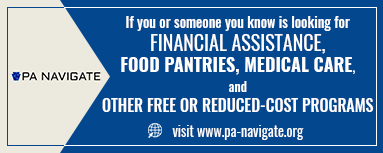Vaccinations play a pivotal role in safeguarding older adults. Our ability to fight off infections and maintain our immune system declines as we age. Many of us who are elderly are also in situations where contagious conditions are easily spread. This creates situations where vaccine use is critical for older Americans to stay healthy and live fully.
Vaccines are a safe and effective way for older adults to build immunity against infectious diseases, reducing the chances of serious illness, hospitalization, and complications. Vaccines have been used for centuries and are one of medicine’s greatest success stories.
Why are Vaccines Important for Elderly Patients?
As people grow older, their immune response diminishes, leaving them more susceptible to infections and severe consequences. This makes vaccines a vital component of maintaining health and preventing diseases that can have dire implications:
- Vaccines help build immunity and protect against various preventable diseases that can be particularly severe in older age. Influenza, pneumonia, shingles, and pertussis are among the illnesses that vaccines help prevent. For elderly individuals, the consequences of these diseases can be severe, leading to hospitalization, complications, and, in some cases, even death.
- By preventing diseases through vaccination, the healthcare burden on elderly individuals and the healthcare system is significantly reduced. Vaccines not only protect the individual but also contribute to overall public health by minimizing the spread of infectious conditions within the community.
- Vaccinations that prevent or lessen the disease burden on the elderly save money for individuals and the healthcare system. Money not spent on treating preventable diseases can be saved or spent elsewhere.
- The impact of preventable diseases on the quality of life for older adults cannot be overstated. Chronic conditions resulting from infections can lead to long-term health issues, affecting independence, mobility, and overall well-being. Vaccination serves as a proactive measure to preserve and enhance the quality of life for the elderly.
It’s not just that elderly immune systems aren’t what they used to be. Other issues make older people more susceptible to contagious diseases:
- They may live with multiple people who may spread diseases, whether that’s at home with family, in assisted living facilities, or in nursing homes
- Their ongoing, chronic conditions take a toll on their health and their ability to fight infections
- Medications for these conditions may impair their immune response
- They may not get enough sleep or exercise or eat healthy food
- Because of their age or medical, financial, or family situations, they may have chronic stress and anxiety to deal with, weakening their immune system
Elderly Americans have a lot on their plates. Though many enjoy good health and stability later in life, retirement may not be the picture-perfect time described in ads for retirement planning services or 55+ housing developments. Many have low incomes, insufficient savings, substandard housing, and an obligation to care for their grandchildren. No matter their situation, the last thing older Americans need is a severe infection that may have been avoided or lessened by a vaccine.
Do You Have Questions or Concerns About Vaccines?
The elderly and their family members should consult with their healthcare professional when deciding which vaccine they should get and when. They shouldn’t rely on rumors, misinformation, and conspiracy theories spread by social media, friends, and others.
We can help out, too. Call the Bucks County Health Improvement Partnership at 267-291-7882 or complete our online contact form.





